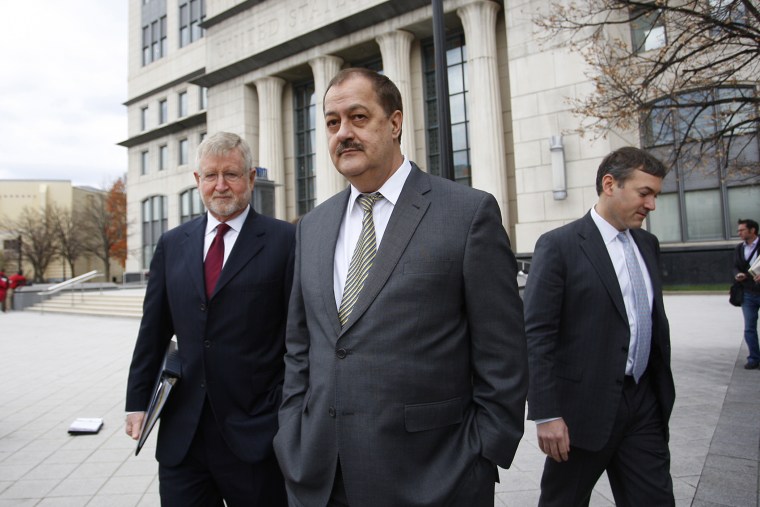The old assumption was that people run for office and then get convicted of crimes. In 2018, that assumption has been flipped: some Republicans have already been convicted of crimes and are now running for office.
It's been labeled the "convict caucus": a trio of GOP ex-cons, two of whom served time behind bars, who are now running for Congress. The list includes Arizona's Joe Arpaio, New York's Michael Grimm, and West Virginia's Don Blankenship.
Lately, this has become more than just an electoral curiosity. The convicted criminals who'll soon be on the ballot are emblematic of something important brewing in contemporary Republican politics. The Washington Post had a good piece on this the other day
[Former New York congressman Michael Grimm] has uncovered a new reality in the constantly changing world of Republican politics: Criminal convictions, once seen as career-enders, are no longer disqualifying. In the era of President Trump, even time spent in prison can be turned into a positive talking point, demonstrating a candidate's battle scars in a broader fight against what he perceives as liberal corruption.In a startling shift from "law-and-order Republicans," Trump has attacked some branches of law enforcement, especially those pursuing white-collar malfeasance, as his allies and former campaign officials are ensnared in various investigations.
Among the key details that Grimm, Arpaio, and Blankenship have in common is that they were charged, tried, and convicted while Barack Obama was president. Is there any evidence to suggest their prosecutions were influenced by politics in any way? No, there's literally none.
But in Trump's GOP, evidence isn't nearly as important as what partisans can be made to believe. And with Special Counsel Robert Mueller's investigation underway, the White House attacking the Justice Department on a regular basis, and party leaders like Vice President Mike Pence celebrating Arpaio as a "tireless champion" of "the rule of law," rank-and-file GOP voters are being asked to believe that law enforcement is not to be trusted when it's a Republican accused of a crime.
The president said at his campaign rally in Michigan over the weekend, "We support the rule of law, and we support the heroes of law enforcement." The rhetoric generated applause, but it's not a line that reflects Trump's agenda, which includes manic condemnations of the FBI and the Justice Department.
Just as importantly, it doesn't reflect the attitudes of candidates like Arpaio, Blankenship, and Grimm, each of whom is telling voters to look past their convictions because law enforcement has been rife with corruption.
They're not ex-cons, the story goes; they're victims of prosecutors run amok. With Trump presenting himself to his party's base the same way for months, the message is landing on fertile soil for many Republicans.
Susan Del Percio, a New York GOP consultant who advised Grimm in 2010 but who now opposes his candidacy, told the Post, "Here's a general rule of thumb: Lawmakers should not be law breakers. I guess it's a different political norm we are facing today."
